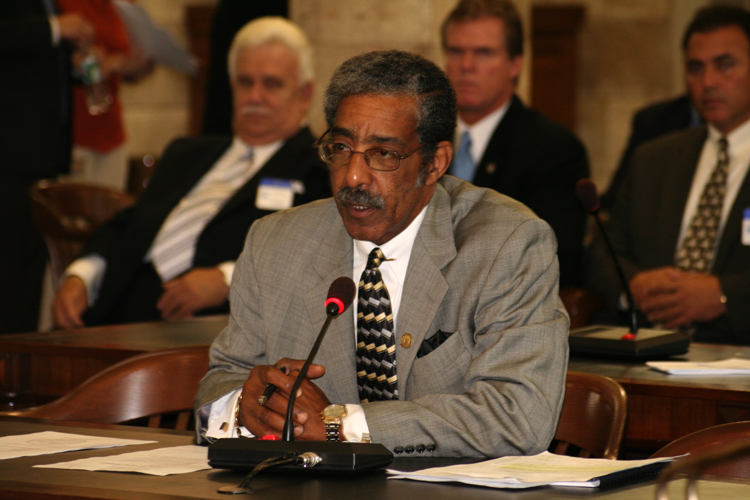
TRENTON – A bill sponsored by Senators Ronald Rice, Peter J. Barnes and M. Teresa Ruiz that would allow community service in lieu of motor vehicle surcharges for the unemployed was approved today by the Senate Budget and Appropriations Committee.
The bill, S-2828, would establish a “Motor Vehicle Surcharge Community Service Program” to allow a person who is unemployed, unable to pay, but who has enrolled in an education or job training program to perform community service in lieu of paying motor vehicle surcharges.
“This measure is about providing assistance to those who are trying to help themselves out of unfortunate circumstances and helping them to avoid perpetual joblessness,” said Senator Rice (D-Essex). “Through the creation of such a program, the community benefits from the service performed and those who don’t have the means to pay for their motor vehicle penalties to reinstate their licenses and seek employment can find a productive way to pay their dues. By allowing individuals to give back in a meaningful way while getting their life back in order, we can ensure a win-win situation for everyone.”
Eligible community service projects would include, but are not limited to, improvements to county and municipal buildings, grounds, roads, streams, and other county or municipal property. The volunteer labor used by a municipality or county would not displace or remove from employment any paid public or private employee or in any way reduce the workforce within a county or municipality.
“Many New Jerseyans with suspended licenses get caught in a catch-22. If they can’t pay the excessive surcharges, they can’t restore their licenses. And without their licenses, they can’t get to and from work or even seek employment,” said Senator Barnes (D-Middlesex). “This provides for a solution that would allow individuals trapped in this cycle and communities as a whole to benefit.”
The program would be administered by the Commissioner of Labor and Workforce Development, who would coordinate with the Chief Administrator of the Motor Vehicle Commission to waive motor vehicle surcharges imposed on applicants who complete a community service project in participating counties and municipalities. The bill would apply only in localities where the governing body of the county or municipality has applied for participation through the Department of Labor and Workforce Development.
“This program is an enabling measure for those who are struggling to pay off their fines. It offers those who are actively enrolled in an education or job training program an alternative to paying surcharges, and allows them to instead perform community service,” said Senator Ruiz (D-Essex). “This bill is important to those who are seeking employment and may not have the ability to pay surcharges. It will also aid in our effort to ensure New Jersey residents are able to support themselves and their families and contribute to the state’s economy.”
In instances where the driving privilege of an applicant has been suspended for failure to pay surcharges, the chief administrator would be required to reinstate driving privileges upon the start of the community service program. If an applicant fails to complete the community service, his or her total outstanding motor vehicle surcharges and any interest accrued would become due immediately. Additionally, the applicant’s driving privilege would be suspended until satisfying the outstanding surcharge assessment.
Drivers whose outstanding surcharges are imposed for drunk driving convictions or refusal to submit to a blood alcohol content test would not eligible to participate in this program under the bill, as well as charges for motor vehicle violations or convictions for which points are assessed.
The bill further provides that a qualifying applicant would not be denied participation in the program due to a lack of volunteer labor projects.
The bill was approved by the Senate Budget and Appropriations Committee with a vote of 4-0. It now heads to the full Senate for consideration.


